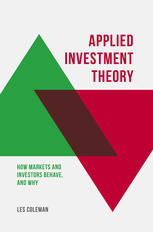

Most ebook files are in PDF format, so you can easily read them using various software such as Foxit Reader or directly on the Google Chrome browser.
Some ebook files are released by publishers in other formats such as .awz, .mobi, .epub, .fb2, etc. You may need to install specific software to read these formats on mobile/PC, such as Calibre.
Please read the tutorial at this link: https://ebookbell.com/faq
We offer FREE conversion to the popular formats you request; however, this may take some time. Therefore, right after payment, please email us, and we will try to provide the service as quickly as possible.
For some exceptional file formats or broken links (if any), please refrain from opening any disputes. Instead, email us first, and we will try to assist within a maximum of 6 hours.
EbookBell Team

5.0
108 reviewsInstitutions now dominate trading in equities around the world. Mutual funds are the most prominent, and doubly important as custodians of retirement savings. Despite this, there is no comprehensive description of fund manager behaviour, much less a matching theory. This is troubling because one of the most economically significant puzzles in finance is why experienced, well-resourced fund managers cannot outperform the market.
Applied Investment Theory: How Equity Markets Behave, and Why brings together academic research, empirical evidence and real market experience to provide new insights into equity markets and their behaviours. The book draws upon the author’s rich industry experience and academic research, plus over 40 interviews with fund managers on three continents and across different markets. The result is an innovative model that explains the puzzle of poor performance by mutual funds in terms of structural features of markets, the managed investment industry, and the conduct of fund managers.
This book provides a fully integrated depiction of what markets and investors do, and why – insights that will resonate with the needs of investors, wealth managers and industry regulators. It is fully documented, but free of jargon and arcane math, and provides a grounded theory that is relevant to anyone who wants to pierce the opacity of mutual fund operations. Applied Investment Theory sets out a new paradigm in investment that is at the forefront of what should be an industrial-scale development of new finance theory following two decades of almost back-to-back financial crises.